保罗时代的哥林多 Corinth in Paul’s Time
哥林多前书 1 Corinthians 1:1–3
Remember these points
I put these points at the top of my sermon-prep template to remind myself every week:
- Show that main point of passage relates to Jesus and his saving work
- (1 Cor 1:18) A truly gospel-centred message will not be acceptable in a synagogue or mosque
- Did I proclaim the gospel as the headline news of the sermon, rather than as a “by the way…”?
- Unbelievers are called to repent, believe, and be saved
- Believers are encouraged to abandon their old self, renew their minds, put on the new self in Christ
- Preach simple sermons, so that God’s people can see Christ more clearly and love him more dearly
News

Today is Palm Sunday, the Sunday before Easter.
The following Friday, Jesus died on the cross, and was resurrected the next Sunday (Easter Sunday).
We can see how fickle the crowd was. They welcomed Jesus into Jerusalem, hailing him as their messiah, and in less than a week, they wanted him dead.
Review
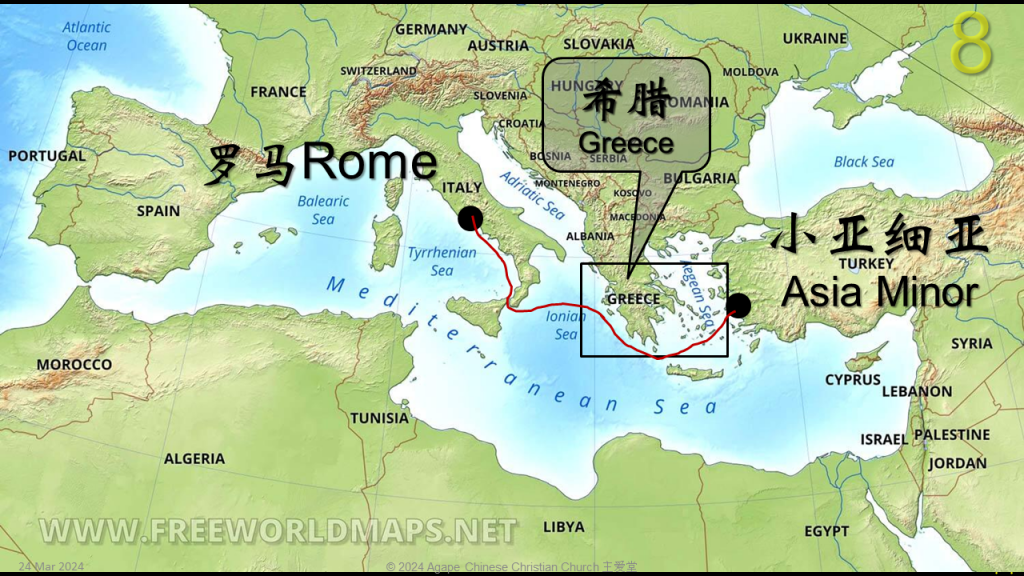


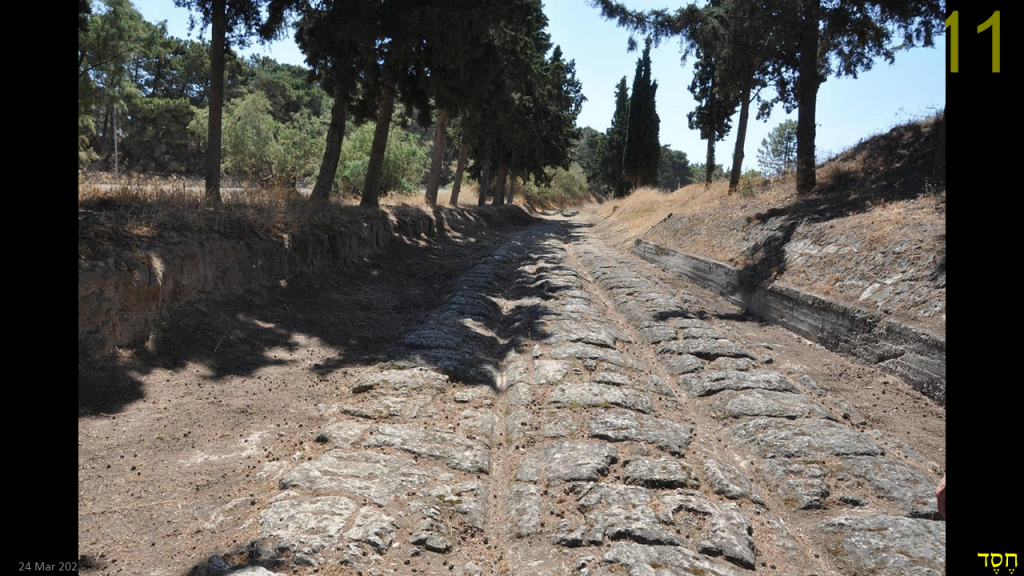

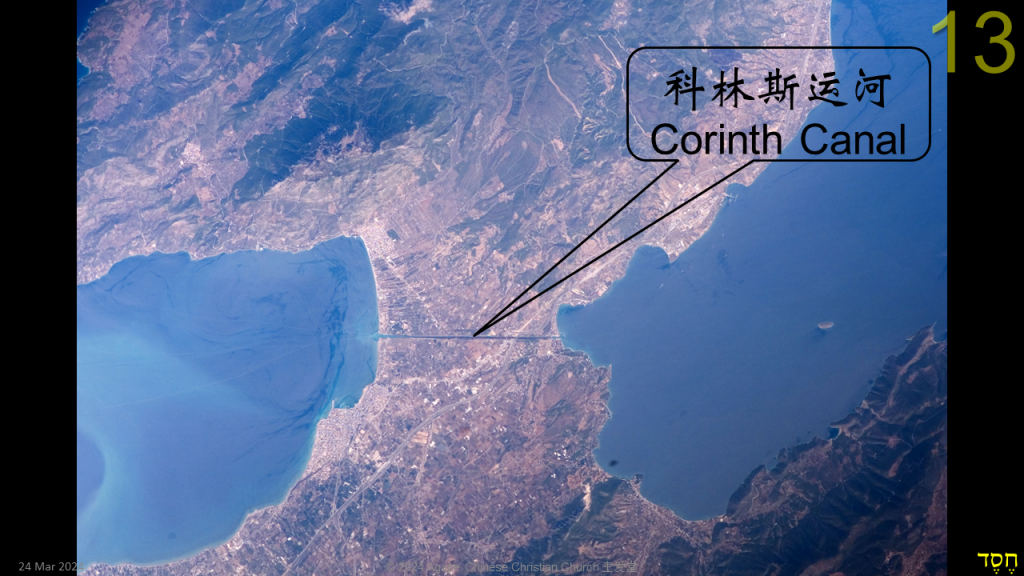
Satellite shot of the Corinth area. The horizontal straight line is the Corinth Canal. Dug in the 1800s, replaces the over-land route.
The canal is only about 24m wide, much too narrow for modern-day ships. So it’s now just a tourist attraction, mainly for small pleasure boats and tour boats.
Not much commercial value.

Hook
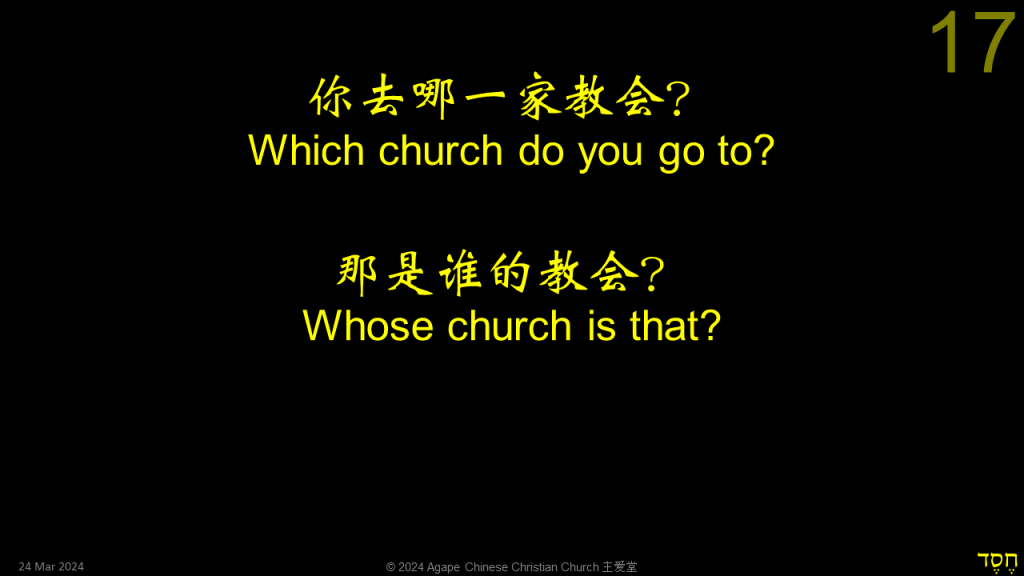
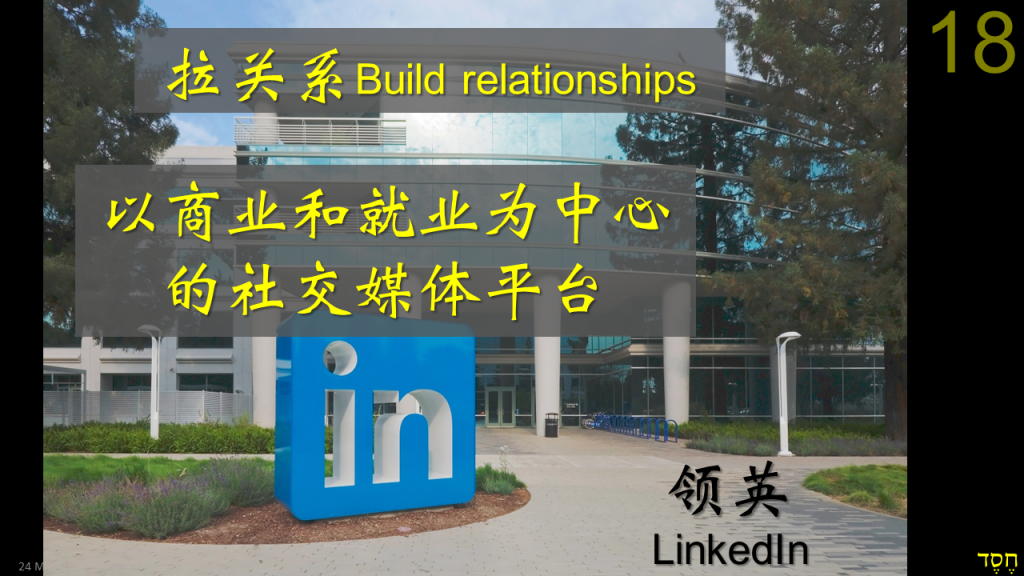
Building Relationships
Do you think it’s important for us to build relationships?
What about for Christians, for a church?
When does relationship-building get in the way of God’s work or God’s mission for the church?
We’ll see (starting with today’s passage in 1 Cor 1:1–3) that one of the problems with the Corinthian church was their emphasis on relationship, placing it above their relationship with the Lord Jesus Christ.
This problem exists today as well in many churches!
Passage
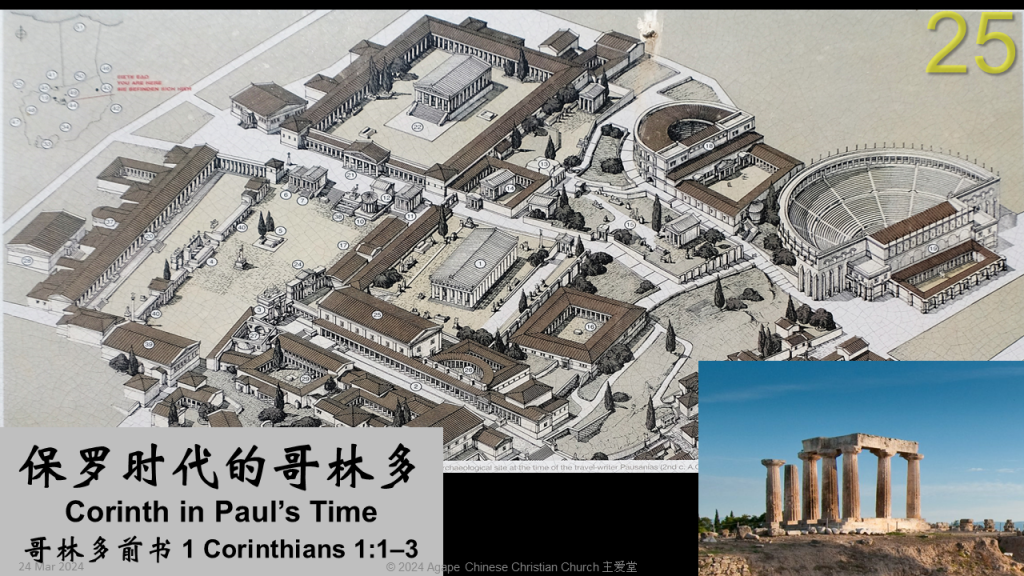
This drawing is mock-up of Roman Corinth. Nothing much is left now. The ruin in the picture is the temple of Apollo.
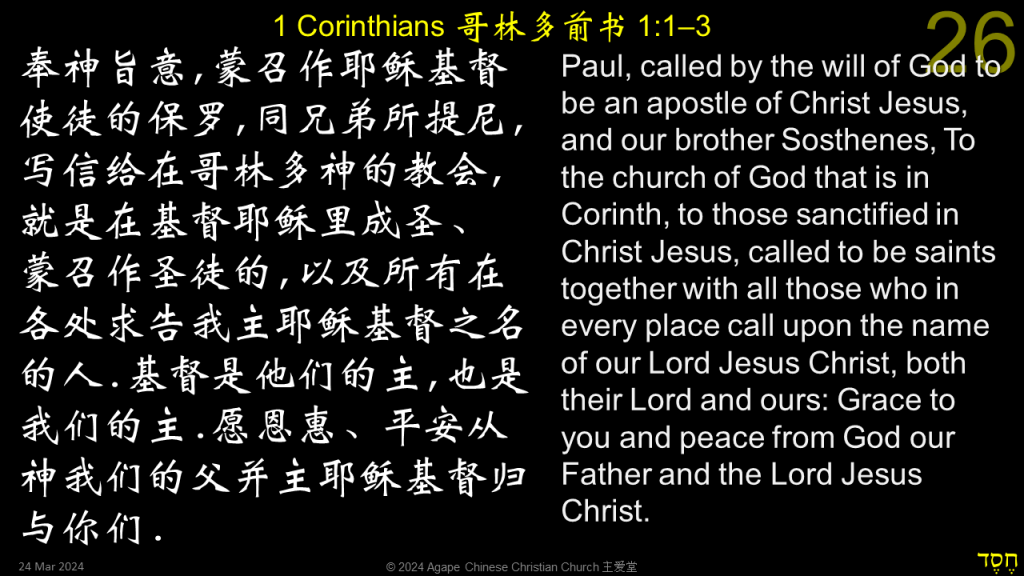
Outline
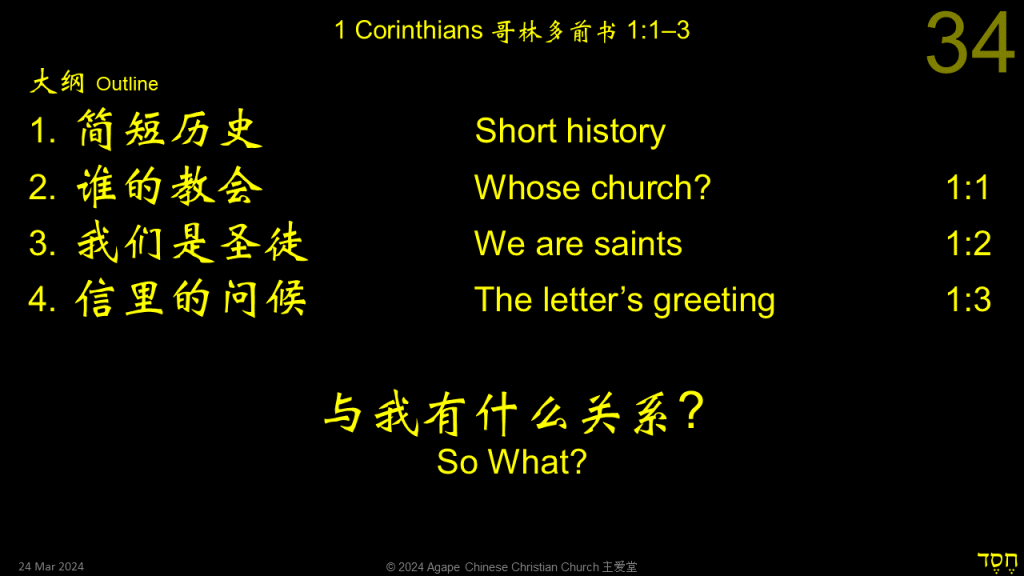
Section 1 简短历史 Short history

- 8th century BC, it was a commercial centre.
- from 7th–8th century BC, different families ruled the city.
- Joined Achaean League in 243 BC.
- Ensure the independence and security of member city-states
- Adhere to democratic governance
- Form a united front to respond to external threats
- Corinth became the centre of the Achaean League
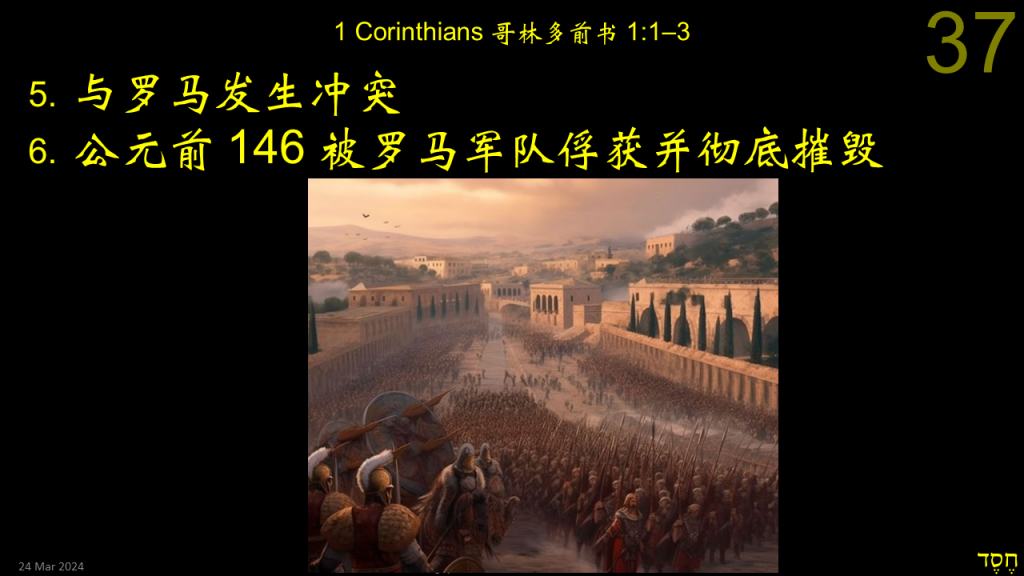
5. When Rome became more and more powerful, the League got into conflict with Rome
6. In 146 BC, Rome had enough, and sent its army to level Corinth


Nearly everyone was killed.
Those not killed were sold as slaves in Rome.
It was left desolate for about 100 years. Corinth was made an example to warn others.
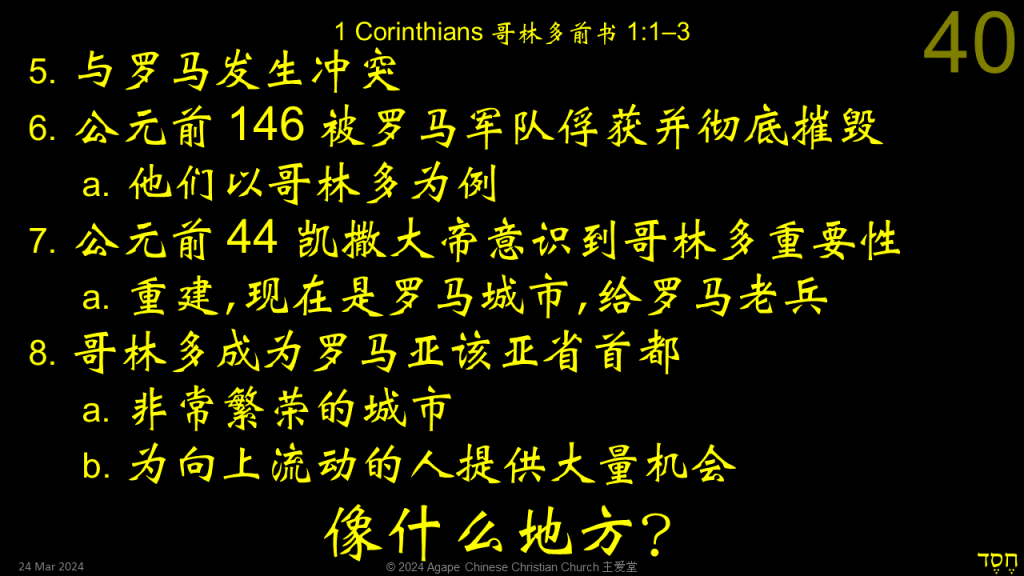
7. In 44 BC, Julius Caesar realised the importance of Corinth to Rome’s expansion to the east.
Corinth became a Roman city, populated by freemen, army veterans, etc. It’s entirely Roman in architecture and government. Very loyal to Rome and the emperor.
8. Corinth became the capital of Roman province of Achaea.
Became an extremely affluent city
A very desirable destination for upwardly mobile people
This is like which place today?
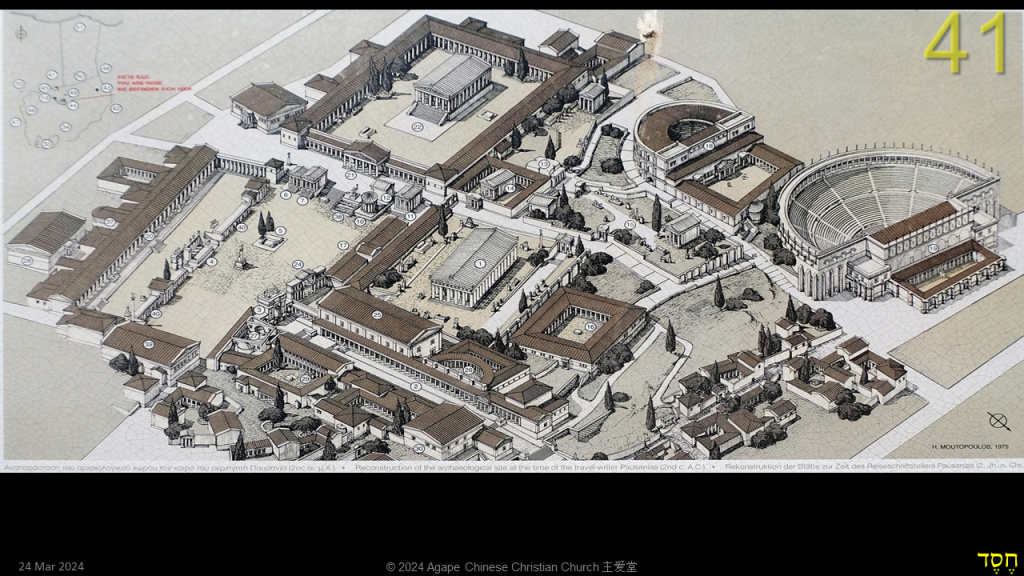
Lessons
Section 2 谁的教会 Whose church? 1:1
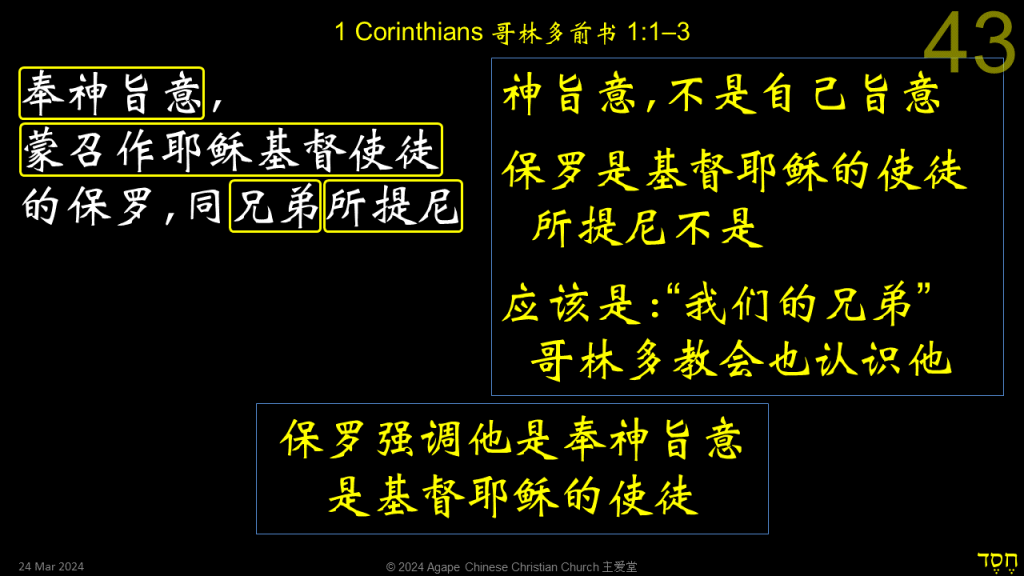
By the will of God, not Paul’s own will, or anyone else.
Paul is the apostle of Christ Jesus, Sosthenes is not.
It should be “our brother Sosthenes,” it’s clear in English, but not in Chinese.

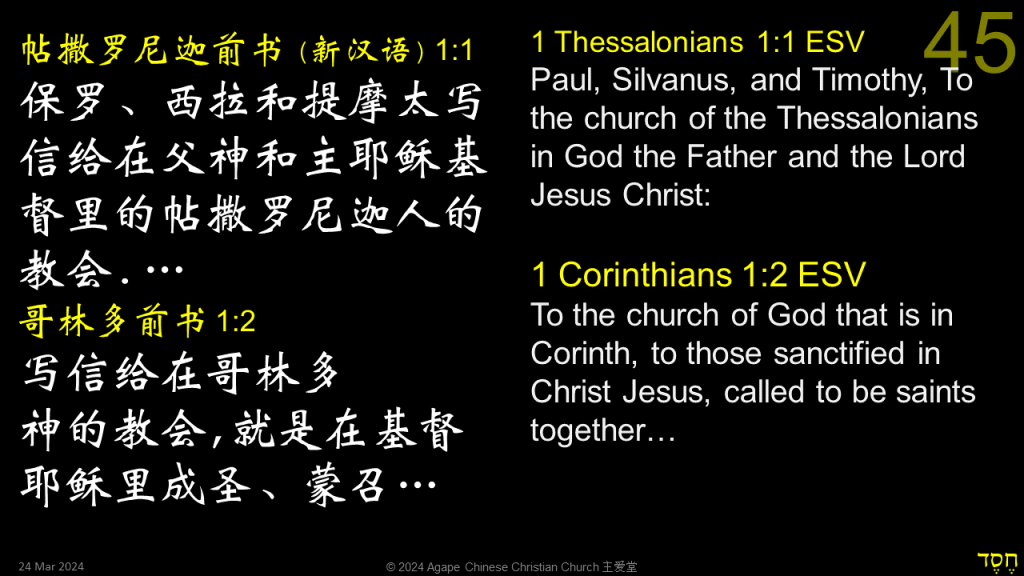

Paul emphasises “church of God,” and not of anyone else.
Contrast this with how he writes to the Thessalonian church above.
Thessalonian church doesn’t have this problem that Corinth has.

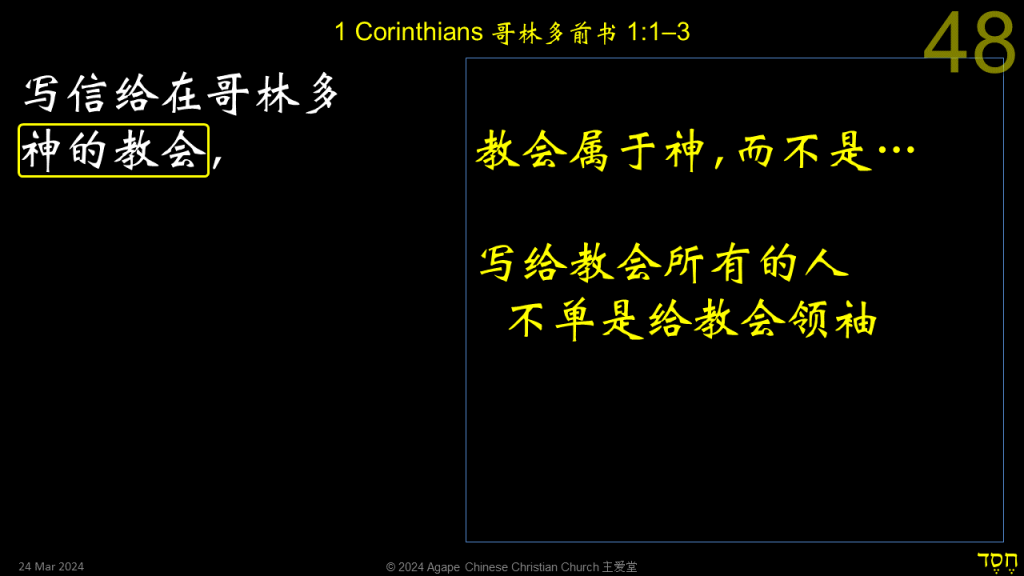
Paul writes to church leaders in Philippian, but to the whole church in Corinth.
Again, another signal of a problem in the Corinth church.
Lessons
Section 3 我们是圣徒 We are saints 1:2
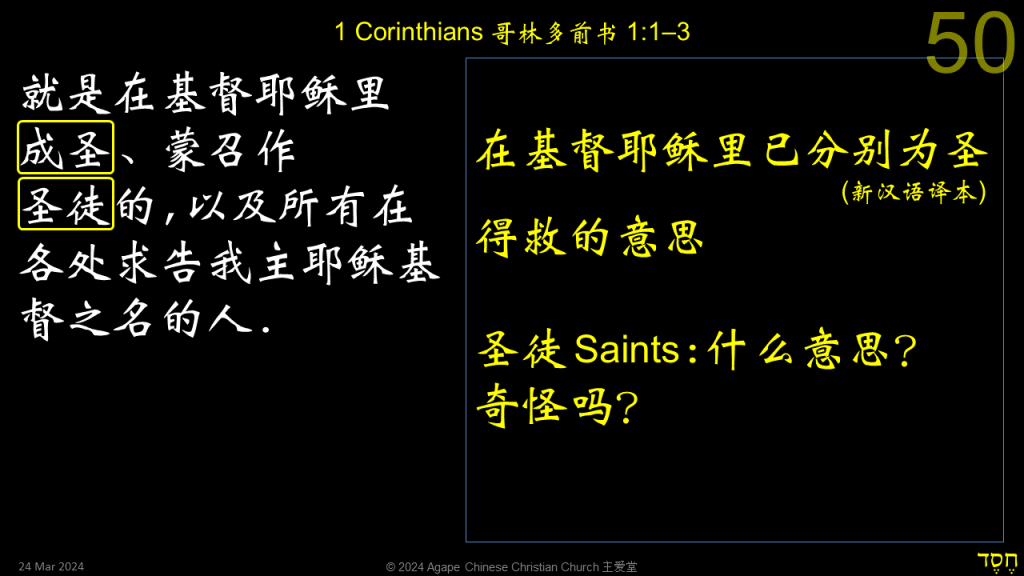
We are sanctified in Christ Jesus. Sanctified here means chosen as God’s people.
This not what we usually say of the process of sanctification.
Paul calls them saints. What does “you are saints” mean?
Surprised? Are we saints?
Lessons
Section 4 信里的问候 The letter’s greeting 1:3
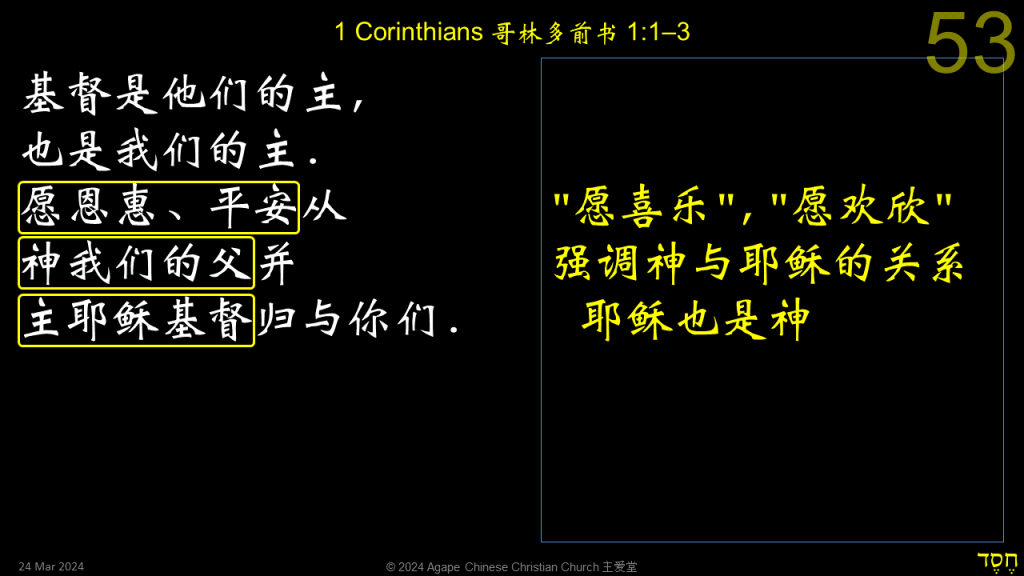
Paul’s letter here (and other NT letters as well) are very similar to normal letters in that era.
But Paul says “grace and peace,” instead of “rejoice” like the usual greeting in letters.
We receive grace from God. It’s grace that made us to be chosen, it’s grace that makes us holy and sanctified.
Lessons
Section 5 <55–59>
Lessons
与我有什么关系? So What?
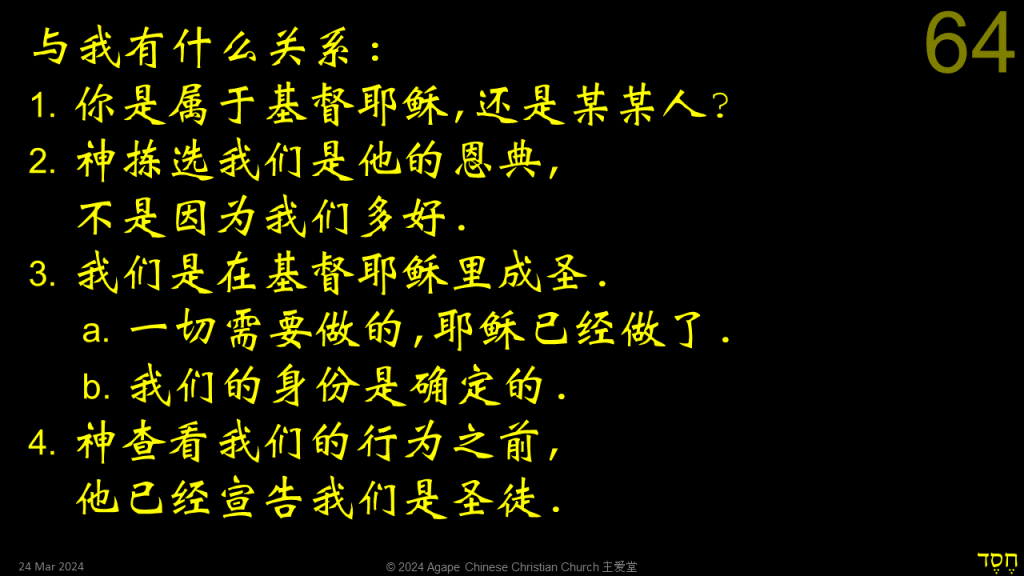
- Do you belong to Christ Jesus, or to some person?
- It’s God’s grace that chose us, not because we’re good.
- We are declared sanctified (set apart, holy) in Christ Jesus
- Everything that we need to do, Jesus has already done.
- Our identify is secure because it was given to us by Christ.
- God declared us holy before he even looked at our record.

